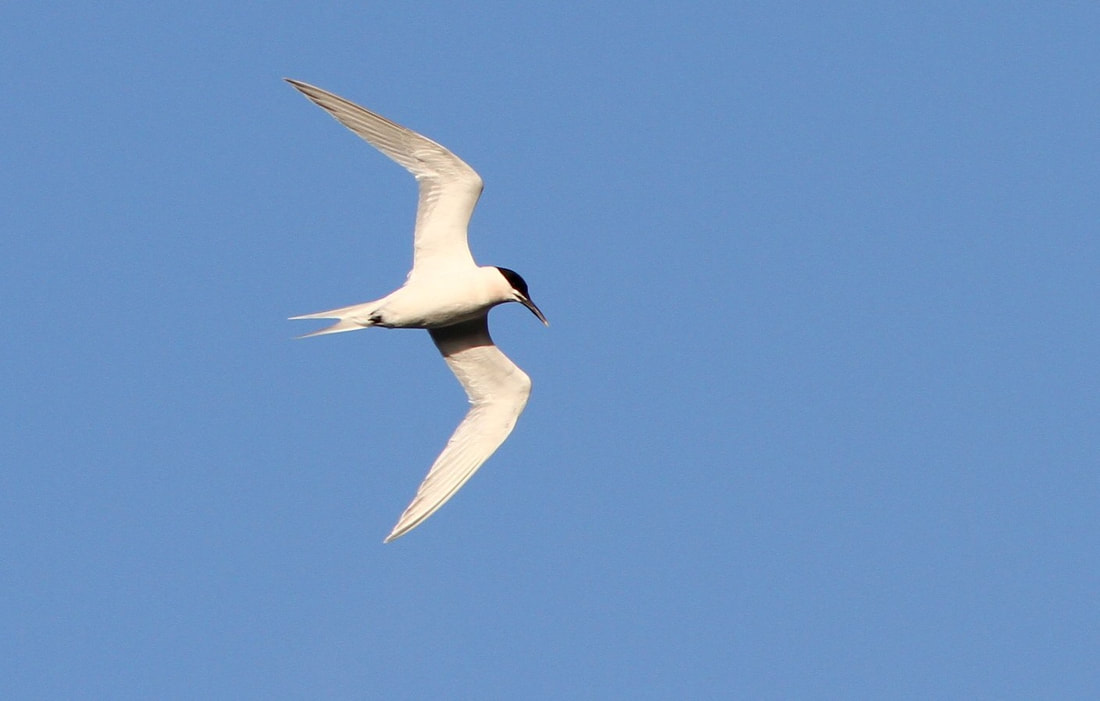|
The breeding season is drawing rapidly to a close for seabirds that nest along the North Wales coast. Most Puffins, Guillemots and Razorbills have left the cliff ledges but remain on the sea with their flightless young for several weeks, making them especially vulnerable to irresponsible watercraft users. Within a few weeks, these auks will move out into the Irish Sea and then the North Atlantic, set for a winter in the toughest of sea conditions.
Many Sandwich Terns have already left the North Wales Wildlife Trust’s Cemlyn nature reserve, although for now the Elegant Tern from the Pacific Ocean continues to offer fishy gifts to any Sandwich Tern within range. Before embarking on the journey to the west coast of Africa, young 'Sarnies' spend a few weeks getting their bearings and learning to fish, often remaining in family groups and begging for food from their parents. Sites such as the Clwyd estuary, Rhos Point and Glan-y-môr Elias near Llanfairfechan can host up to 1,000 Sandwich Terns on the high tide, so it is critical that people and their dogs give them space as they rest up before their long migration. They dive from a similar height to gold medallists Tom Daley and Matty Lee, entering the water with closed wings and barely a splash to seize a sandeel or sprat. Local birdwatchers will be looking closely for coloured rings that were fitted to their legs when they were chicks. One at Rhos Point on Friday had been ringed at RSPB Hodbarrow in Cumbria last month, a colony that accounts for around 10% of late-summer Sandwich Tern sightings in North Wales. Around one-third originate at Cemlyn and a quarter from Lady’s Island Lake at the southeastern tip of Ireland, but others come from North Sea coasts as far away as Denmark. The first Pied Flycatcher and Grasshopper Warbler of the autumn on Bardsey, Wheatear and Redstart on the Great Orme and a Wood Sandpiper over Penrhyn Bay are signs that migration is underway. Ospreys were over Point of Ayr, Caerhun, Beaumaris and Penrhyn Bay, and Hooded Crows at Aberdaron, RSPB South Stack, Church Bay and Cemlyn. Mediterranean Gulls are at several locations, including nine at Afonwen and eight on the Inland Sea. In the Dee estuary, a Melodious Warbler was ringed on Hilbre and a Long-billed Dowitcher is at RSPB Burton Mere Wetlands.
0 Comments
Leave a Reply. |
Bird notesA weekly update of bird sightings and news from North Wales, published in The Daily Post every Thursday. Archives
July 2024
Categories |

 RSS Feed
RSS Feed
